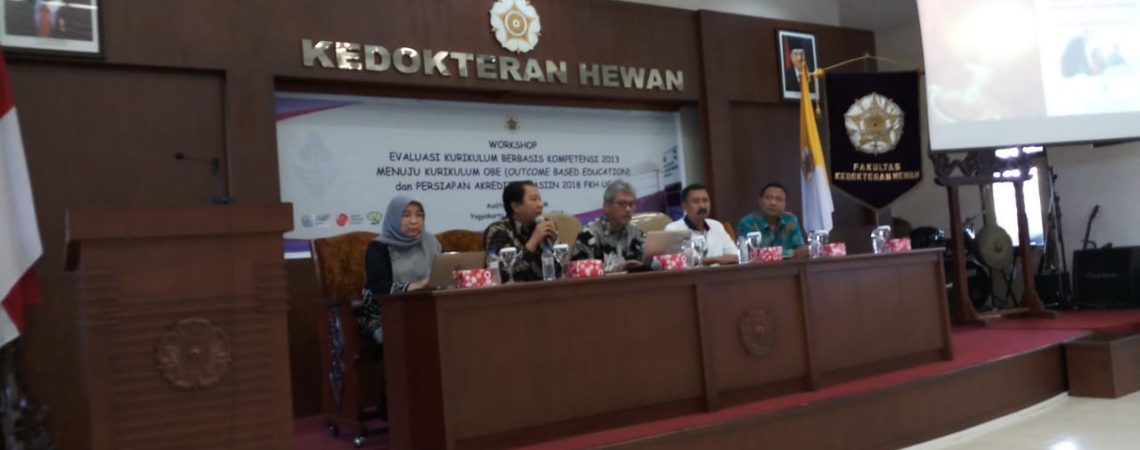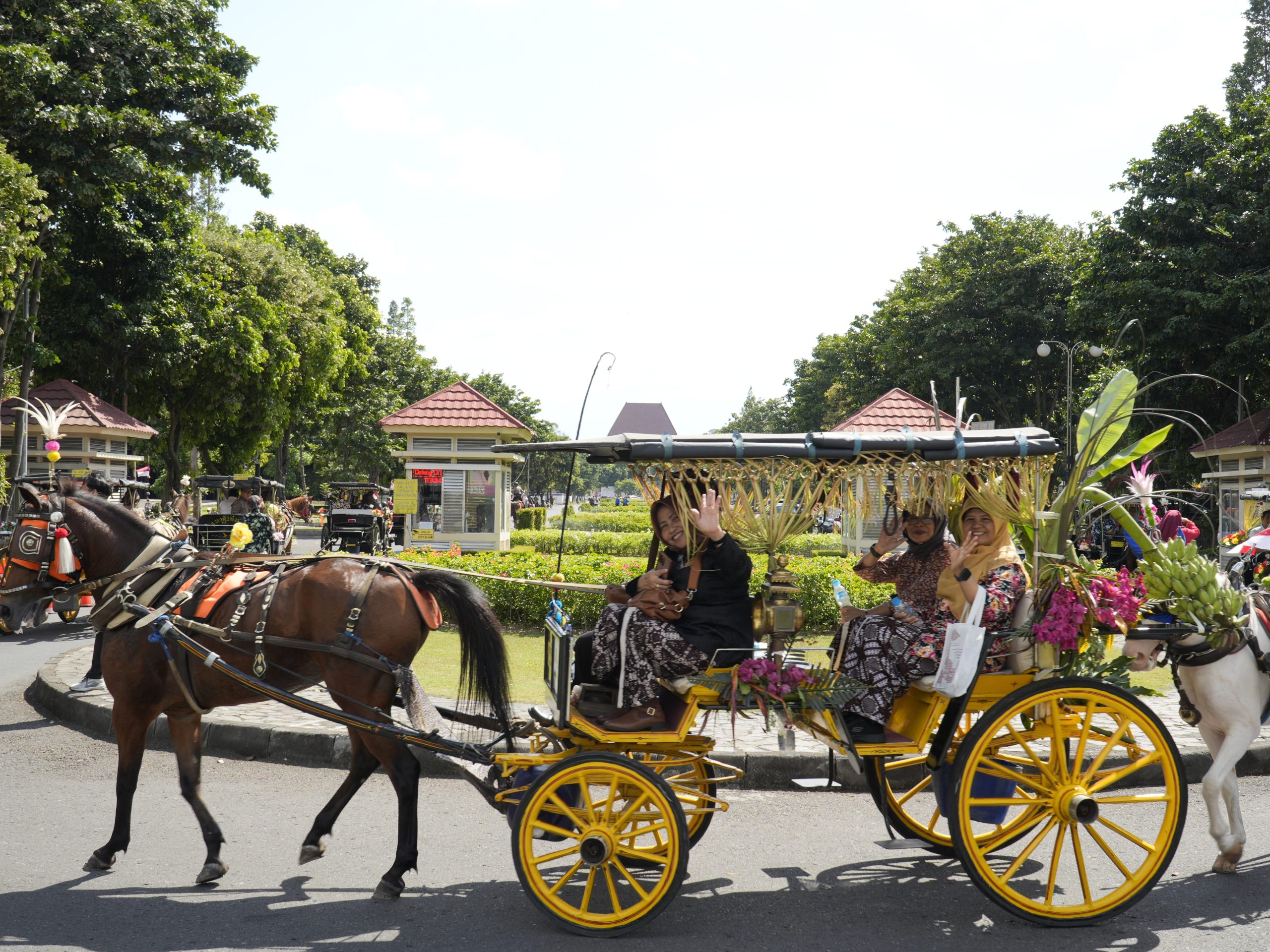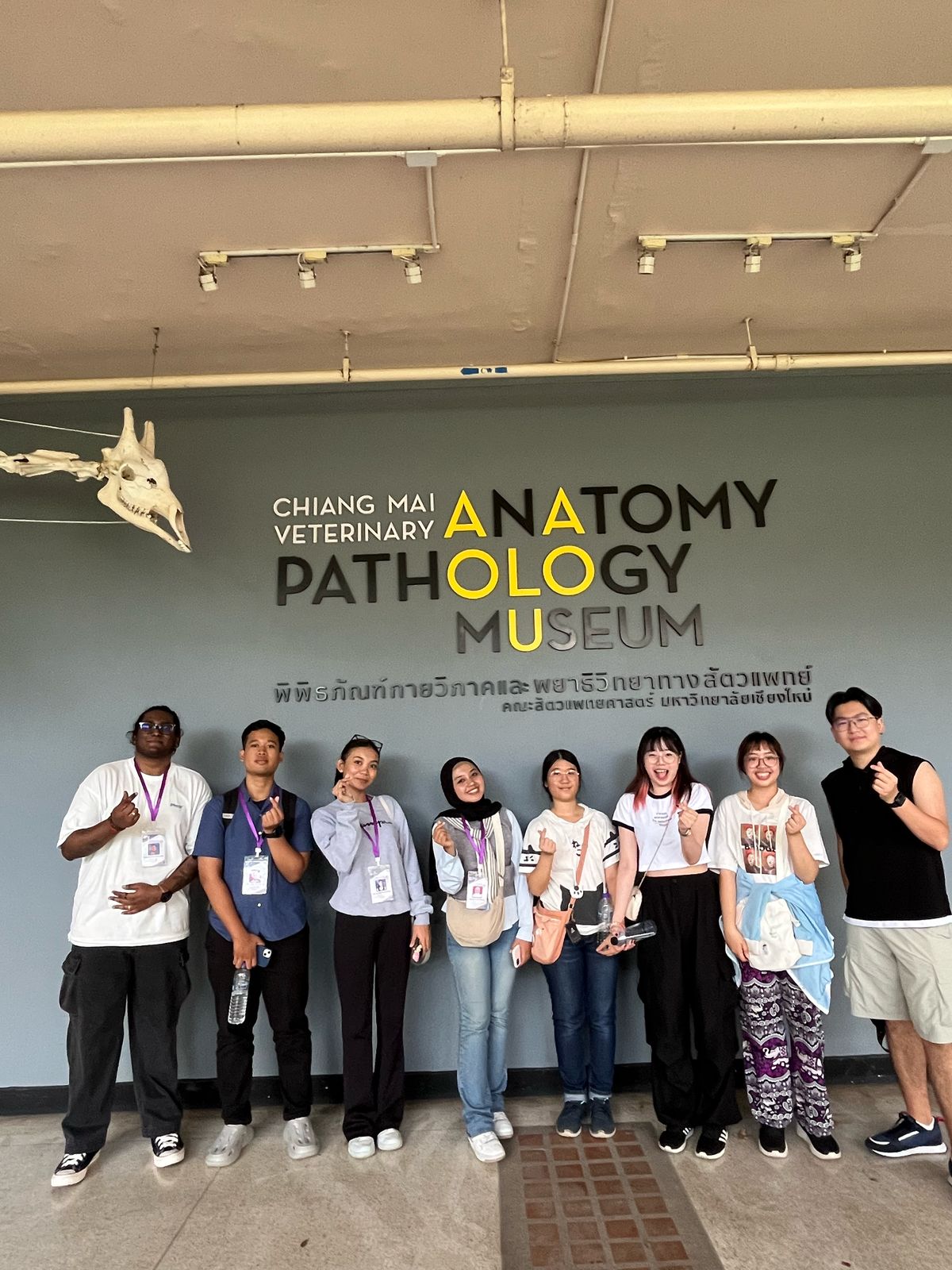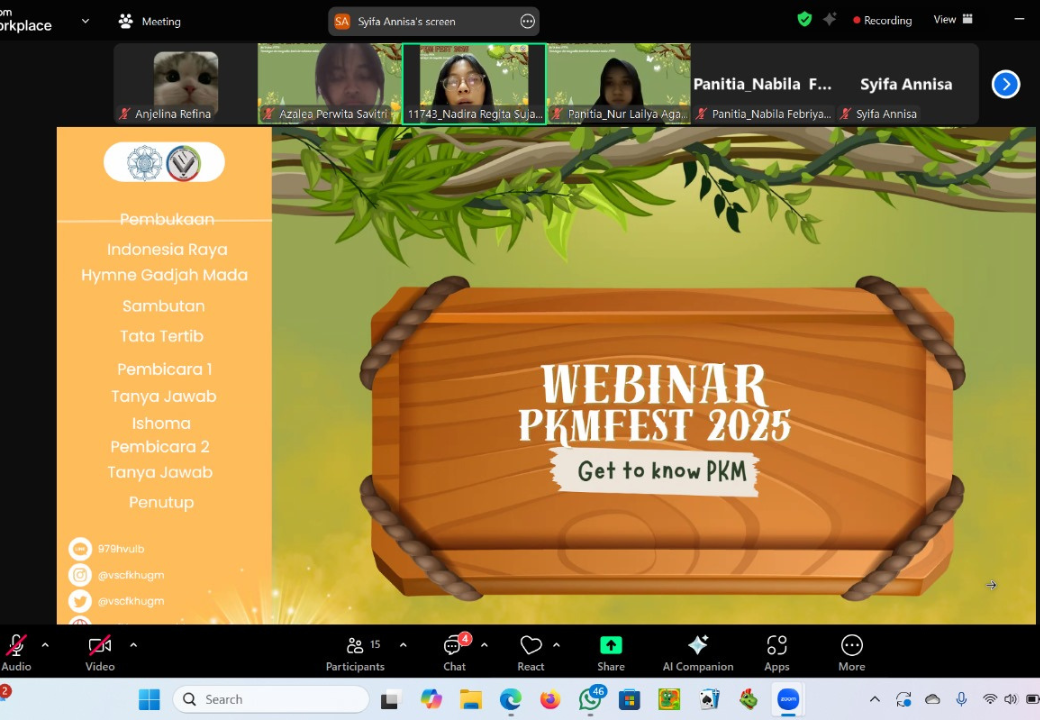Faculty of Veterinary Medicine UGM held a workshop to evaluate curriculum 2013 (curriculum-based competencies), develop Observed-Based Education (OBE) Curriculum, and prepare the ASIIN Accreditation in December 2018. Workshop was held on Wednesday, November 28, 2018 in the Auditorium, V3 Building, 3rd Floor, Faculty of Veterinary Medicine, Universitas Gadjah Mada from 8.00 am until 1.30 pm. The event was attended by 4 speakers and 102 participants, which included lecturers, faculty staffs, stakeholders, representatives of undergraduate and postgraduate students of Faculty of Veterinary Medicine UGM. The event was preceded by an introduction to the workshop by the Vice Dean of Academic and Student Affairs FVM UGM, drh. Agung Budiyanto, M.P., Ph.D., and was opened by the Dean of the FVM UGM, Prof. Dr. drh. Siti Isrina Oktavia Salasia who emphasized the needs for the evaluation of the Curriculum Based Competency 2013 after 5 years through stakeholders’, lecturers’, faculty staffs’, and students’ feedback and preparation for ASIIN visitations which will be held in middle of December 2018. The delivery of material by 4 speakers were guided by moderator Dr. drh. Doddi Yudhabuntara.
The first material was delivered by drh. M. Munawaroh, M.M., President of Indonesia Veterinary Medicine Association (IVMA/PB PDHI), as well as alumni of the FVM UGM. He explained that the graduate competence that must be possessed by graduates of the FVM UGM is to apply veterinary and livestock science and technology creatively and innovatively based on ethics, morality, Pancasila, and citizenship and apply the concept of scientific thinking (Professional, Leader, Manager, Entrepreneur, and Researcher). In the Millennial Era of the 21st century, the Faculty of Veterinary Medicine UGM requires several things that need to be improved in the academic field as well as learning facilities:
- Students must be able to produce innovative and creative works related to animal health and biotechnology products supported by advanced Information and Communication Technology facilities and infrastructure.
- Students must be able to build and design a start-up business in the field of Animal Health and Public Health Services supported by information technology.
- Students must be able to answer the challenges of the world of veterinary medicine with an information and communication technology approach.
- Students must have a communication network globally to improve competency in the field of veterinary science that is expected for the future.
- Students are expected to have Multi-International Language skills as a capital to absorb information to understand global problems.
- Students should have the spirit of innovation and creativity to answer problems in the business world in the field of veterinary medicine through a technology, information and communication approach.
The second speaker, drh. Usman Fanani, Head of GR and GA Central Java Region and DIY (Poultry Industry) , explained that Veterinarian graduates must have:
- Good mental work in the industry
- High leadership and independence
- Mental business and entrepreneurship
- Skills in Human Resource management
Inputs in academic matters included:
- Students should not only learn in class but also practice in the field
- Educators must be diligent in updating teaching materials
- Students should not only learn from books, but also journals and other internet sources.
- Students should take part in discussions and attend seminars/workshops on particular topics
- The lecturers must also provide opportunities for students to work on real projects in the industrial world.
- The topic regarding Basic and Advanced Business Courses, Leadership Courses, and Human Resource Management Courses must be added more into the FVM curriculum.
The third speaker, Founder and Commissioner of PT. Bina Citra Agro Farma and also the alumni of the FVM UGM, drh. Ismanto (Entepreuner/Animal drugs industry) enlightened that Veterinarians need to integrate:
-
- Eye (must be clever at seeing opportunities)
- Brain (have the ability to think/analyse)
- Effort (must be able to act in solving a problem)
Suggestions given by drh. Ismanto in improving the curriculum of the FVM UGM included enhancing in learning Anatomy, Reproduction, Poultry Pathology, Poultry/Nutrition Feed Raw Materials, and Large Cattle and Horse Poultry and Livestock Cultivation. The fourth speaker, Prof. Dr. drh. Siti Isrina Oktavia Salasia, as Dean of the Faculty of Veterinary Medicine UGM delivered the material about “Maintaining Five STAR Veterinarian Based on Manusya Mriga Satwa Sewaka (To Serve Mankind Through Animal Kingdom)”. This material was delivered to prepare ASIIN accreditation visitations in December 2018. ASIIN accreditation is included in several criteria, including: The Degree Program (concept, content, and implementation), Exams (System, Concept, and Organization), Resources, Transparency and Documentation, Quality Management (Quality Assessment and Development). By presenting the material on ASIIN accreditation, it is expected that all lecturers, faculty staffs, and students of the Faculty of Veterinary Medicine UGM can be involved to face the upcoming ASIIN visitation in December 2018.
The program continued with a discussion session guided by moderator Dr. drh. Doddy Yudhabuntara and it was followed by the presentation on the results of the discussion and the summary of the resource material by the Formulation Team, represented by Dr. drh. Tri Wahyu Pangestiningsih, M.P. In general, the addition of field skills or field practice is needed so that FVM graduates would have better understandings on the conditions in the field. To improve the field capability, FVM must work more with outside agencies both from alumni networks and others, with scheduled internships so that students’ ability to work can be improved. In general, graduates of FVM UGM are flexible, not arrogant, more confident in taking action and possessing highly qualified liturgy. The most typical shortcomings are only a little difficult to respect themself especially when it comes to salary levels. Graduates of FVM UGM are also required to think comprehensively and have the ability to collaborate with many sectors in facing a problem in the field. In this case, knowledge about One Health needs to be given more deeply both in S1 and S2 students.
Following that, the event was then closed by the MC. The feedbacks obtained from stakeholders, lecturers, faculty staffs, and students in this workshop were expected to provide materials for improvement of FVM UGM in the future. In addition, this workshop was also projected to be useful as a preparation for all faculty components to prepare for ASIIN visitations which will be held in middle of December 2018.
